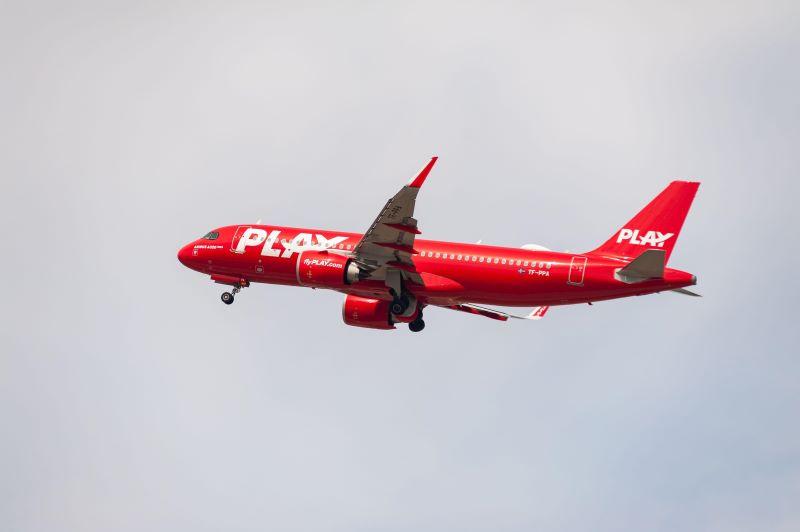
Iceland-based ULCC Play is predicting a successful year after external factors knocked its performance off-course in 2022, the airline’s CEO said March 7.
The rapidly expanding carrier, which operates a hub-and-spoke model linking Europe and North America through its home base in Reykjavik (KEF), expects to offer passengers an additional 12 destinations in 2023, taking its route network to 33 points.
“As we enter into 2023, we are optimistic about the future and believe that the challenges we faced in 2022 are behind us,” CEO Birgir Jónsson said in the airline’s annual report. “We have seen a strong start to the year, with very healthy advance bookings and revenue growing nicely. We are committed to expanding our capacity this year, and we expect to carry between 1.5 and 1.7 million passengers in 2023 using 10 aircraft and employing over 500 people.” The airline operates a mix of Airbus A320neos and A321neos.
Jónsson said the company remained cautious about the global macroeconomic environment, “but we believe that our positive revenue and unit cost trends will deliver positive EBIT results for the full year, which will be a significant achievement as 2023 will be our first whole year where we operate the full transatlantic network.”
Play made a net loss of $45.5 million in 2022, doubling 2021’s loss of $22.5 million. But passenger numbers rocketed, from 100,000 to 789,000, as countries emerged from pandemic restrictions and yield per passenger increased from $165 to $175. Load factor was 79.9%.
However, the CEO said factors including high fuel prices caused by the Russia-Ukraine war and lingering COVID-19-related issues meant that financial results were not in line with expectations.
“We have taken significant steps to address and improve this matter and have already seen a very positive development in our revenue generation while our operating costs are still lower than we anticipated, a great recipe for success,” Jónsson said.
He insisted, however, that “overall, 2022 was a successful year for Play, and our robust traffic numbers and strong performance show that we are absolutely on the right track of becoming a well-known brand in our market.”
Jónsson said Icelandic Tourist Board data showed Play’s share of Icelanders traveling abroad was nearly 25% in 2022 and even higher in key months. “This is a significant accomplishment in a highly competitive market, and it is evident there is a strong demand for a low-cost airline in Iceland,” he said.
The company intends to continue expanding its market share as it grows its route network on both sides of the Atlantic, he said.
